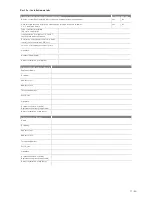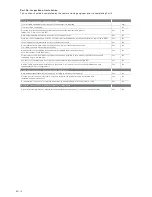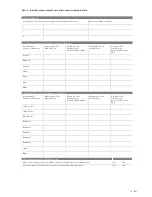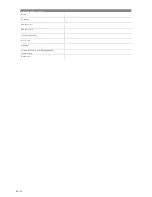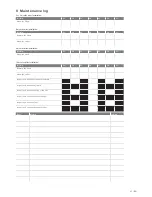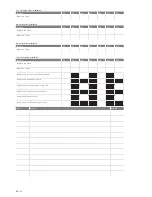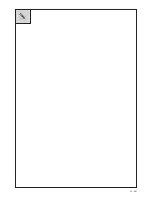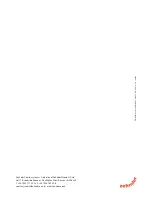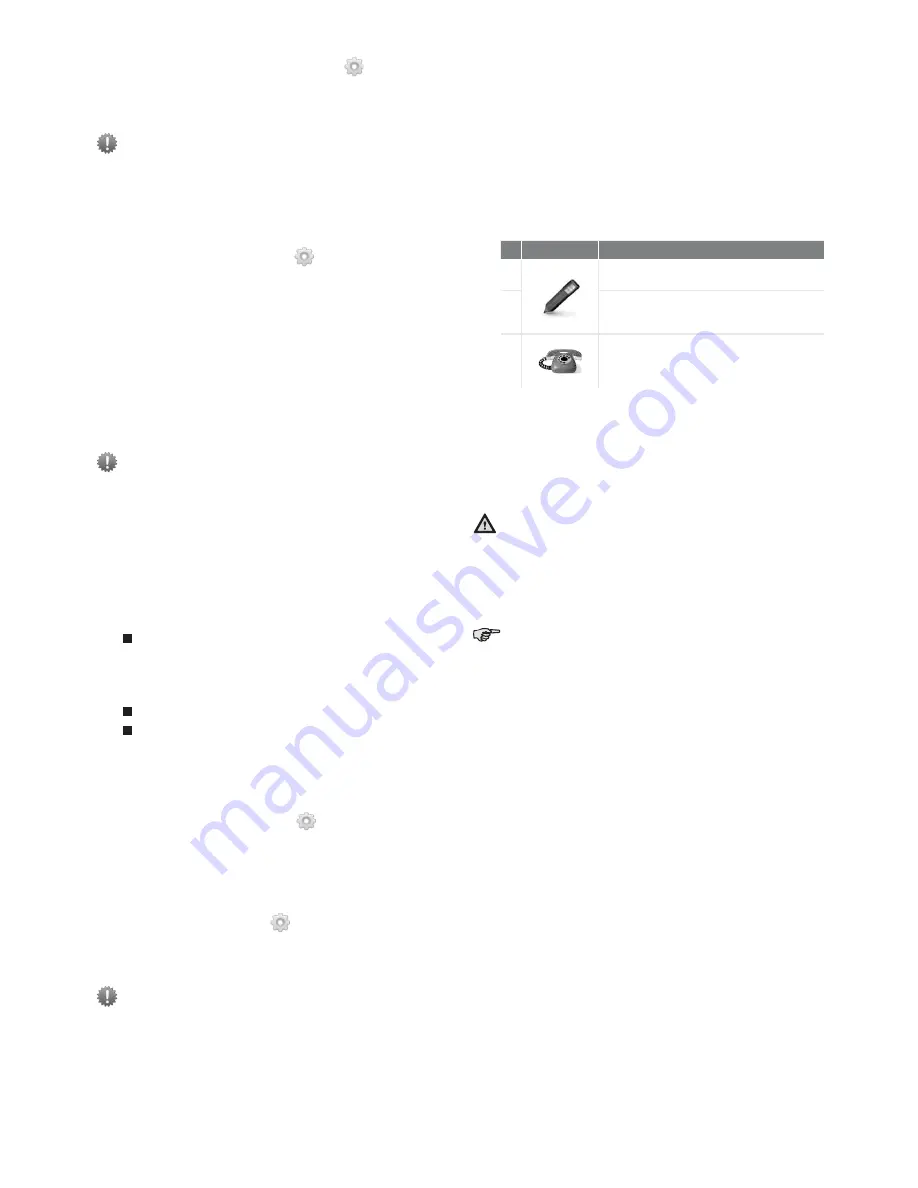
15 - EN
4.1.2 Cleaning the internal filters
Vacuum the filters (B) with a vacuum cleaner instead
of replacing them with new filters.
When using the unit for the first time, it
is recommended to clean the filters (and
valves) first. During the construction phase
the ventilation system could have become
dirty with building dust.
4.2 Cleaning the valves
Clean the valves (at least) twice a year.
1. Mark the setting of the valve;
2. Remove the valve from the wall or ceiling;
3. Clean the valve in a solution of soap and warm
water;
4. Rinse the valve thoroughly and wipe dry;
5. Place the valve back WITH EXACTLY THE SAME
SETTING (and IN THE SAME HOLE);
6. Repeat this procedure for the other valves.
Some valves have a filter behind them. If a filter
is present, clean it in the same way as the valve.
About the valve settings
The ventilation air is supplied and discharged
by means of valves. Gaps under or near doors
in the dwelling ensure that the air flows in the
right direction. In order to ensure that the correct
ventilation volumes are maintained in the rooms, the
following must be observed:
Do not seal the gaps under or near doors. For
example with furniture, draught excluders or
deep-pile carpet. The gap should be at least
10mm;
Do not change the settings of the valves;
Do not replace the valves with one another.
The installer will have set all the valves to ensure
the optimum performance of the ventilation system.
Therefore, do not change the setting of the valves.
4.3 Condensation drain
Ensure that the water seal (u-bend) connected to the
domestic waste-water system is always full of water.
4.4 Maintenance by the installer or
service engineer
Not all neccesary maintenance can be done by the
user.
Once every 2 years the installer or a service
engineer should come by for the maintenance
inside the balanced ventilation system.
Some installers offer a full maintenance contract
package where the user maintenance can also be
integrated.
5 Malfunctions
In the event of a malfunction, the corresponding
malfunction code will be displayed on the display of
the unit.
In event of a filter malfunction the filter must
be cleaned or replaced as described in the
„Maintenance“ chapter.
In the event of all other malfunctions:
Action
Explanation
1
Note down the malfunction code that
appears on the display of the unit
2
Note down the unit type.
This is given on the identification plate on
the unit near the power supply.
3
Contact the installer or service engineer and
give him the noted information.
The system should not be disconnected from the
power supply, unless the unit must be taken out of
service due to a serious malfunction, or for filter
cleaning/replacement or any other compelling
reasons.
If the unit is disconnected from the power
supply, mechanical ventilation of the
dwelling will cease. This can lead to a build-
up of moisture and result in problems with
mould.
I
f the unit is installed in an area with a higher
average humidity (such as bathroom or
wc) the probability of condensation on the
outside of the unit is high. This is similar to
condensation on a window and no action is
needed.
Summary of Contents for ComfoAir 200
Page 4: ...EN 4...
Page 23: ...23 EN...

















